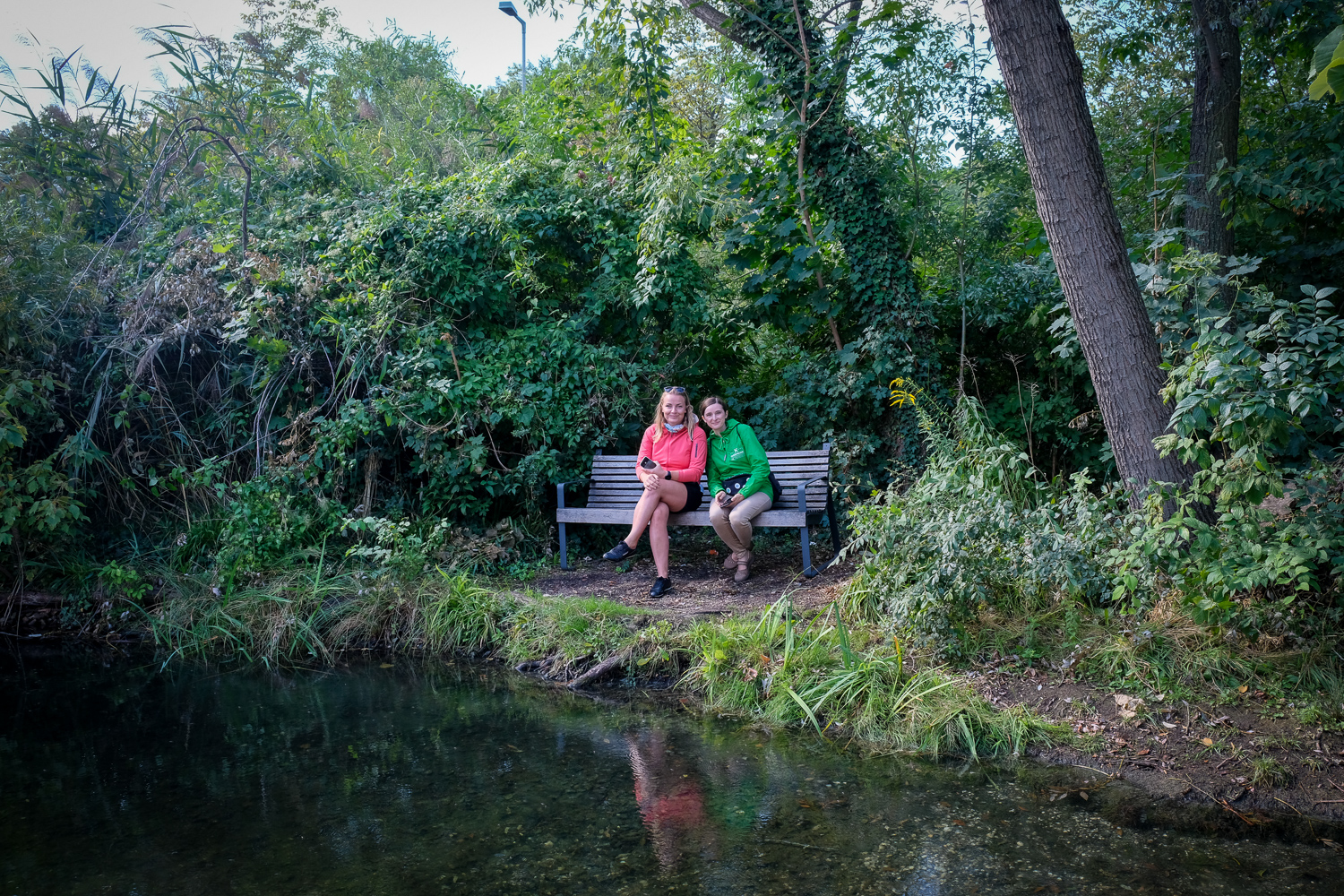Addressing Climate Change in Cities: Berlin study tour for Polish nature-based solutions and local government experts
A group of polish local government experts, landscape planners, architects and engineers participated in a study tour on nature-based solutions in Berlin on 25 and 26 August 2020, as part of the EUKI project “Climate NBS Poland”. The Polish experts visited some of the most innovative and creative applications of nature-based solutions in Berlin.
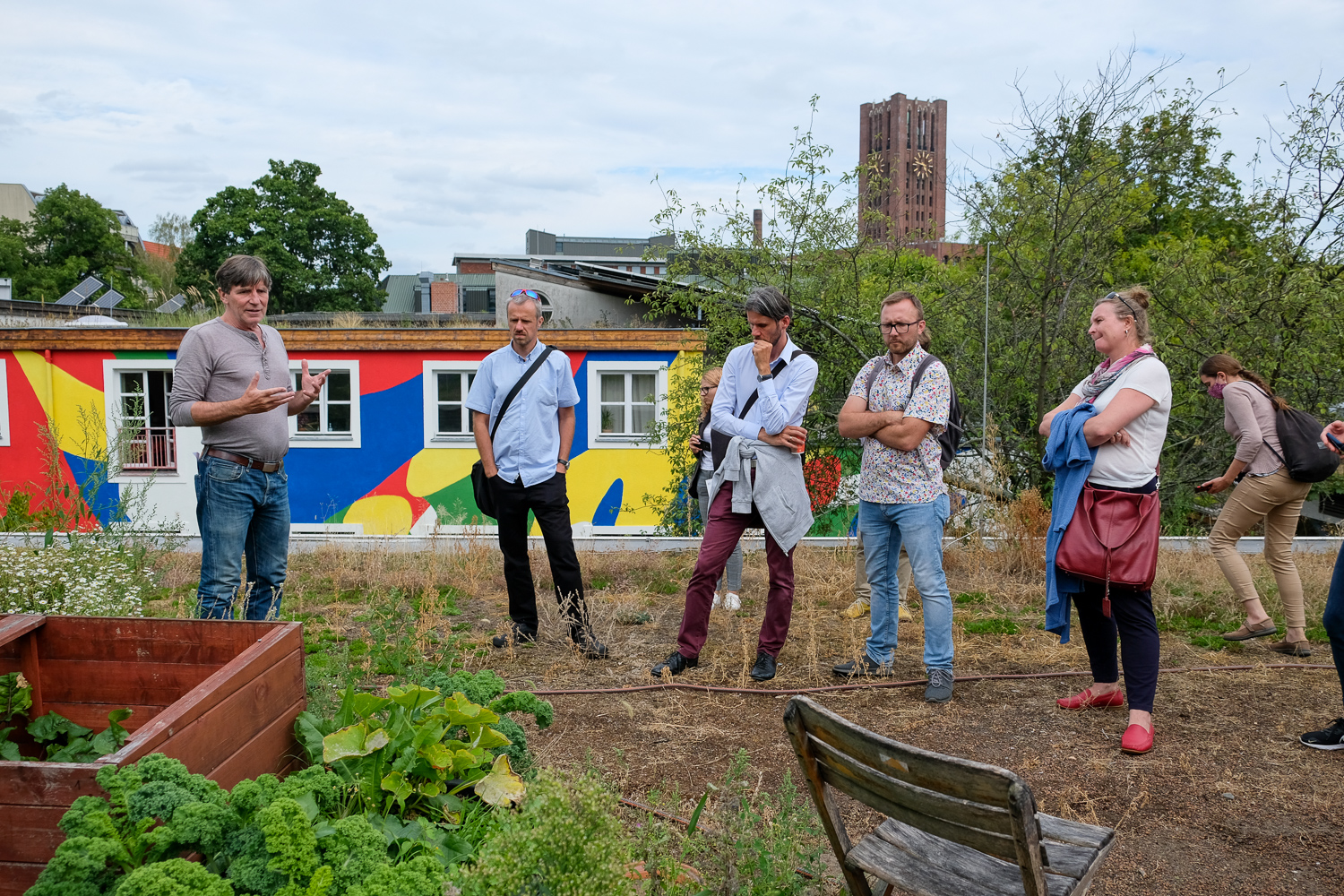
Berlin: a frontrunner in urban nature-based solutions
Nature-based solutions (NBS) can be implemented in urban settings to deliver a suite of services to address climate change, such as reduced demand for heating and cooling, stormwater management, microclimate regulation but also support human health and recreation. Thanks to their multi-functionality and sustainability NBS are increasingly applied as measures to address climate change in cities – in Berlin, a number of innovative NBS projects have been implemented in Berlin already since the 1990s to address such challenges.
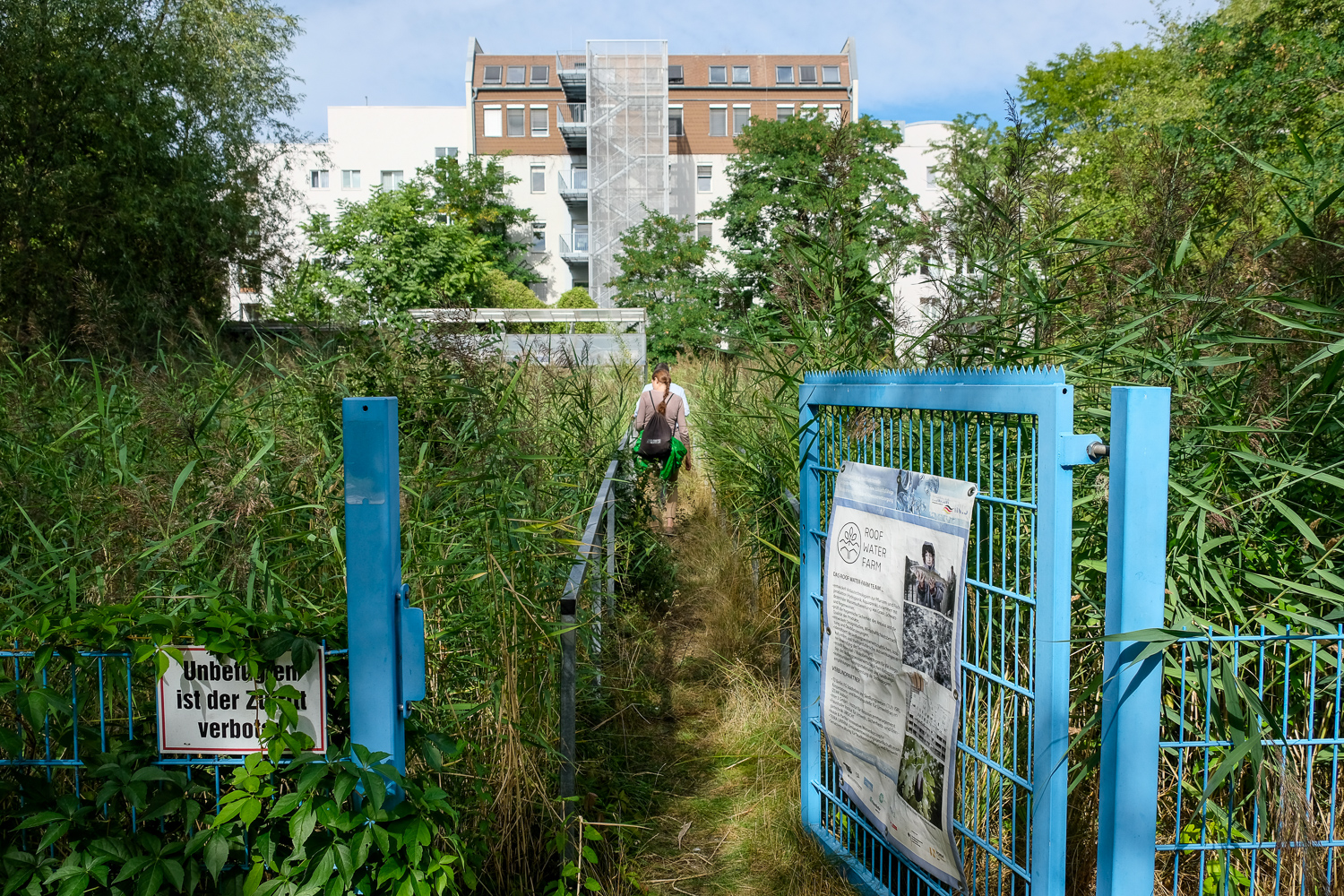
“I was very impressed by the fact that twenty years ago, when the climate crisis was not yet a widely discussed issue, such solutions were already being proposed in Berlin” said Monika Pec-Święcicka, Deputy Director of the Wrocław Municipal Green Spaces Management Authority. “The reasons were different, and they were the same as those which made our parents save water and collect paper, bottles and metal”.
Visiting the most innovative NBS sites in Berlin
During the two-day tour, the Polish experts visited the complex application of the sustainable urban drainage system (SUDS) at Potsdamer Platz, the Roof Water Farm and Block 6, a test-site for innovative urban grey and black water management combined with urban farming, ufaFabrik a cultural centre and home to Berlin’s oldest green roofs and a solar-powered “sustainable oasis of culture”. On the second day, the Polish experts learned about thermal management and on-site water management concept at the building of the Department of Physics of Humboldt University. Finally, the participants visited Rummelsburg Bucht, an eco-district with a complex rainwater management system and an exemplary model of the “Sponge City” concept.
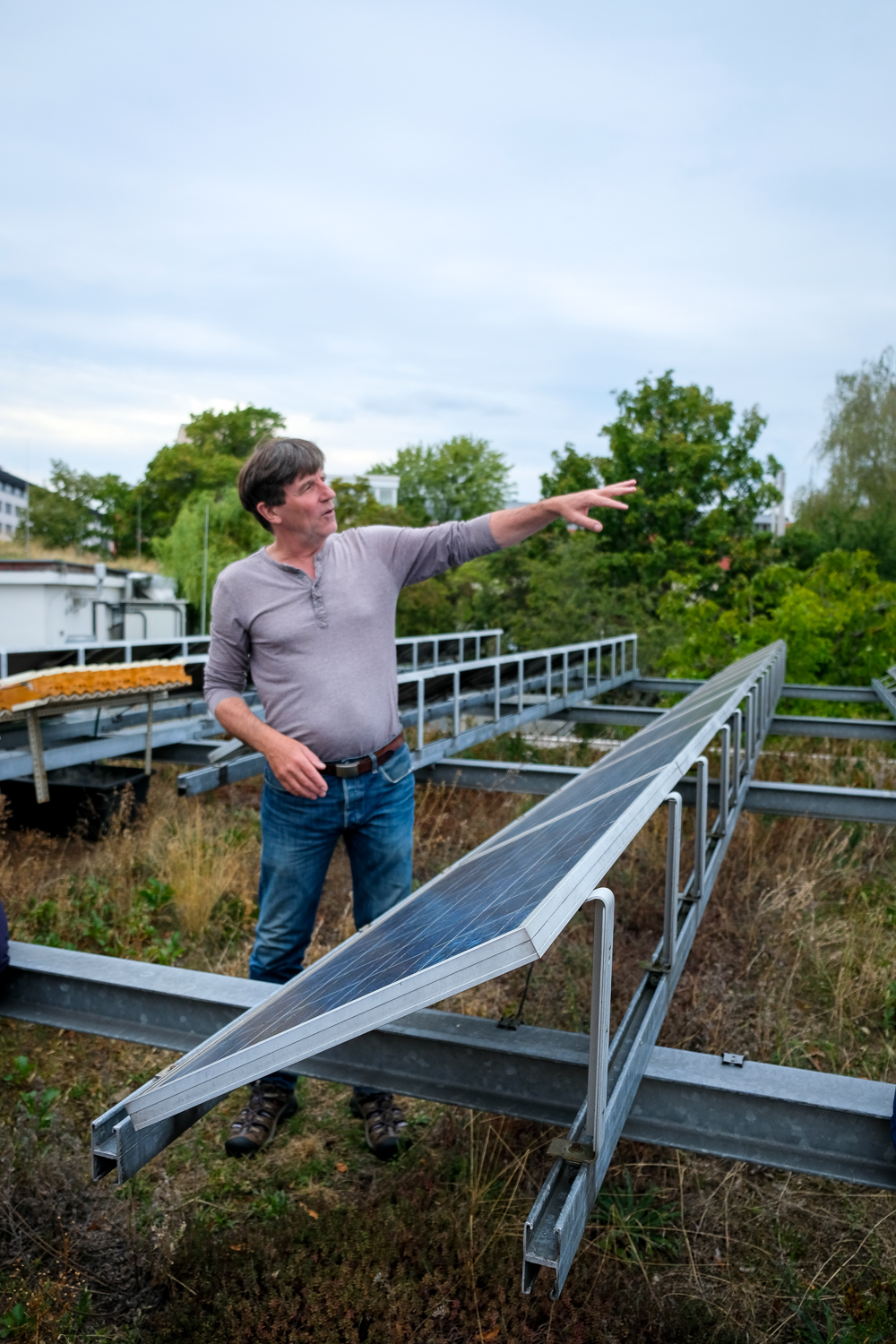
“The trip to Berlin was extremely inspiring”, said Aleksandra Zienkiewicz, Public Relations Coordinator of the Wrocław Municipal Green Spaces Management Authority”. What impressed me the most were the really very technical projects, such as the water treatment on and in the buildings at Potsdamer Platz, where the treated water fed an artificial lake that could cool down the area in a hot summer. On the other hand, however, the simplest solutions, connected with appropriate shaping of road surfaces, adapting roadside infrastructure to accept rainwater, or directing rainwater through from a paved up square to green areas, which are an integral part of that square, seem to be the easiest to implement quickly in Wrocław. What I hope will happen and become a standard solution”.
“I think that the selection of site visits was very appropriate It has fully shown that nature-based solutions require broader and interdisciplinary thinking, but ultimately lead to savings and an increase in quality of life” added Monika Pec-Święcicka. “I was most impressed by ufaFabrik’s actions, especially the solar panels that rotate in relation to the sun, and do not require manual operation, but rather use the laws of physics”.
Exchange between Polish and German NBS experts
The Polish participants had also an opportunity to exchange with Berlin-based sustainable urban development experts: Brigitte Reichmann from the Senate Department for Urban Development and Housing, Dr. Darla Nickel, Head of the Berliner Regenwasseragentur and Dr. Carlo Becker founder of bgmr Landschaftsarchitekten. The expert discussion addressed issues such as the involvement of private investors in the planning and implementation of NBS, application of ecological building criteria or the Berlin regulations for rainwater infiltration and implementation of decentralized approaches.
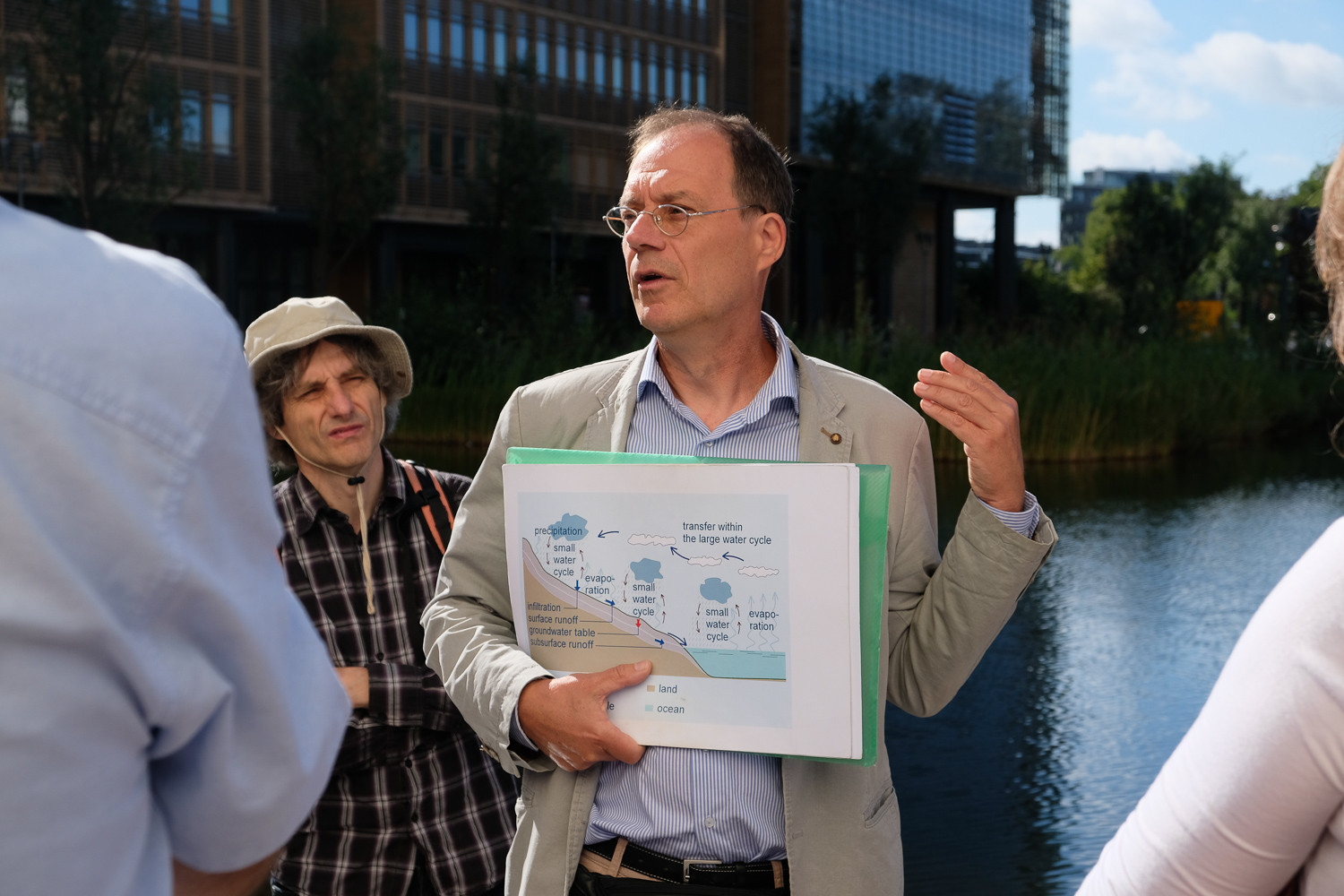
“My dream for the city of Wrocław is that, in new developments, all rainwater would have to be managed on site and that buildings would drain grey and black water separately, giving great opportunities for further use of such wastewater – which we could already see in Berlin – for the benefit of people and the environment” commented Aleksandra Zienkiewicz.
The study tour was part of the “Climate NBS Poland” EUKI project. The project aims to increase the understanding, acceptance and uptake of multifunctional NBS as a cost-effective urban climate mitigation and climate protection measure. By initiating and fostering cooperation and exchange between Polish and German planning, engineering and policy experts, the project seeks to build capacity, knowledge and skills among city officials, municipal staff and landscape planners to enable the conceptual and technical design and implementation of NBS.
